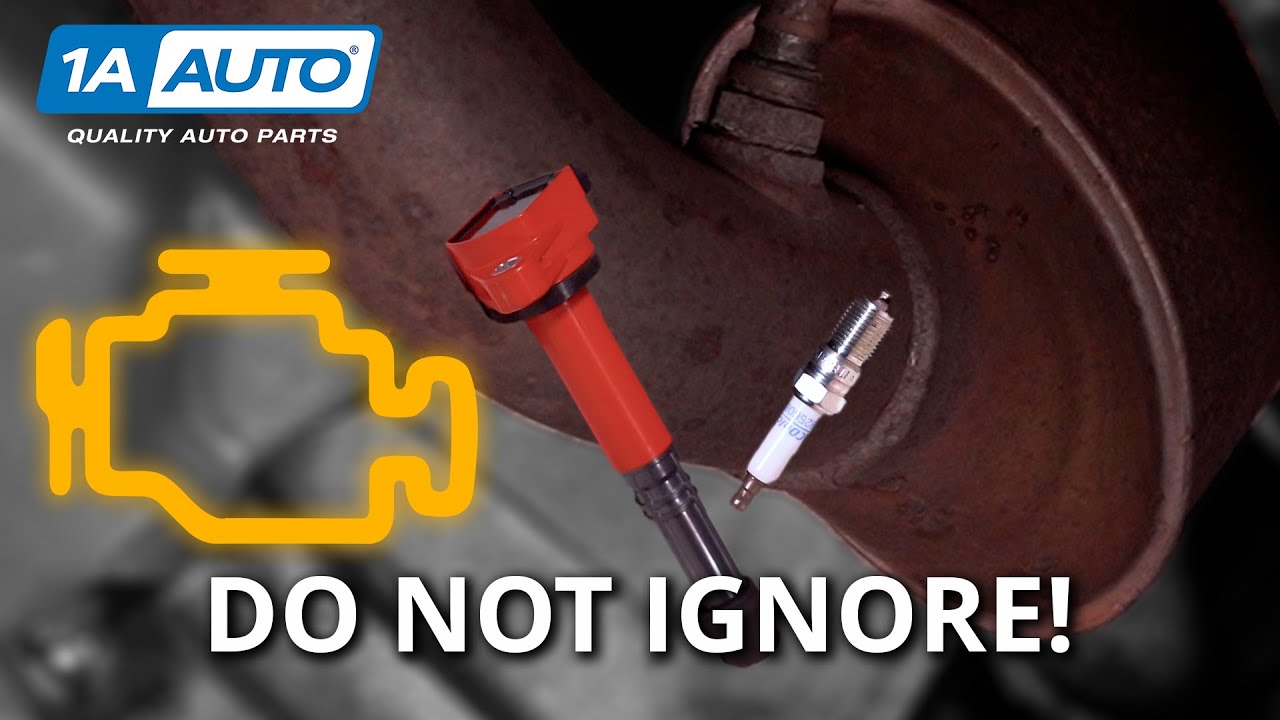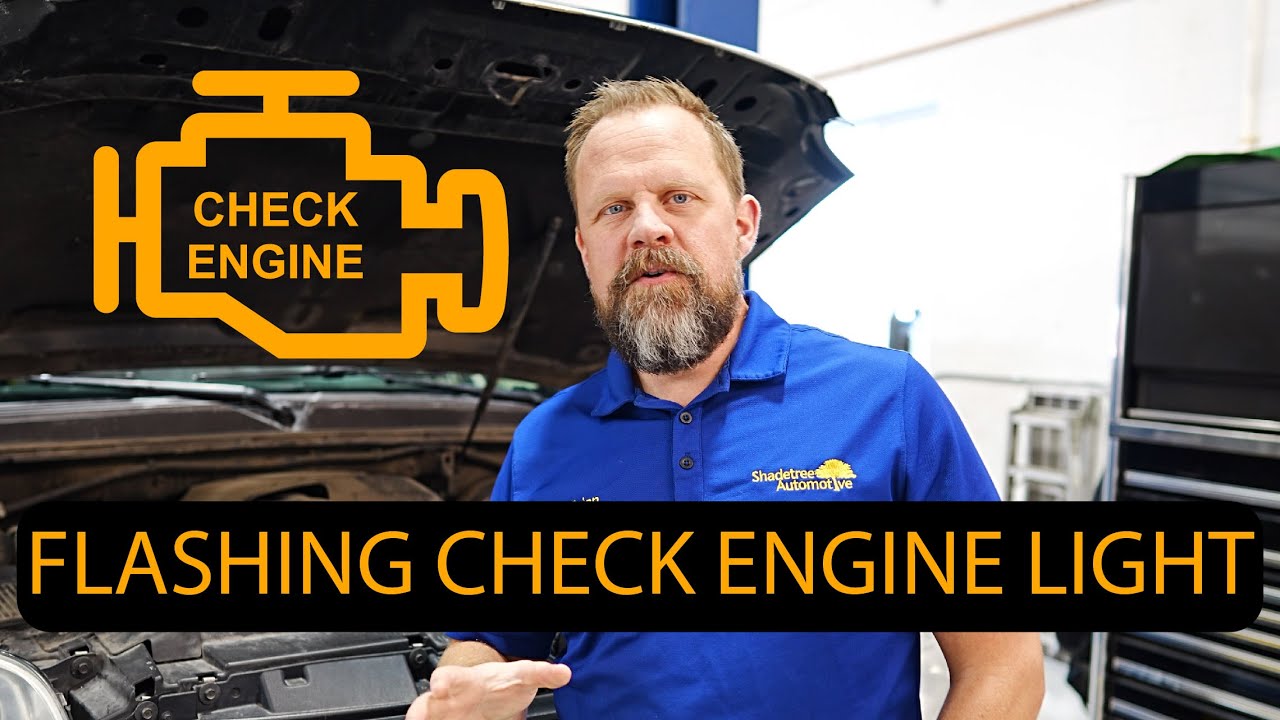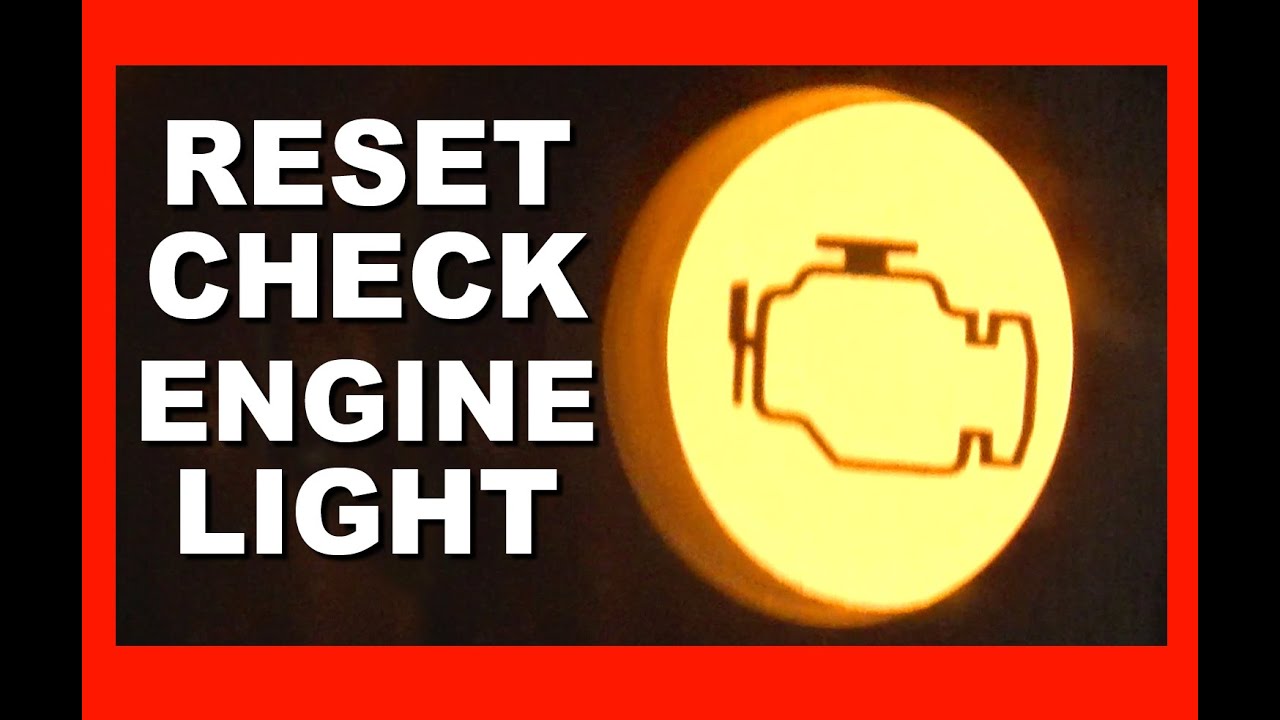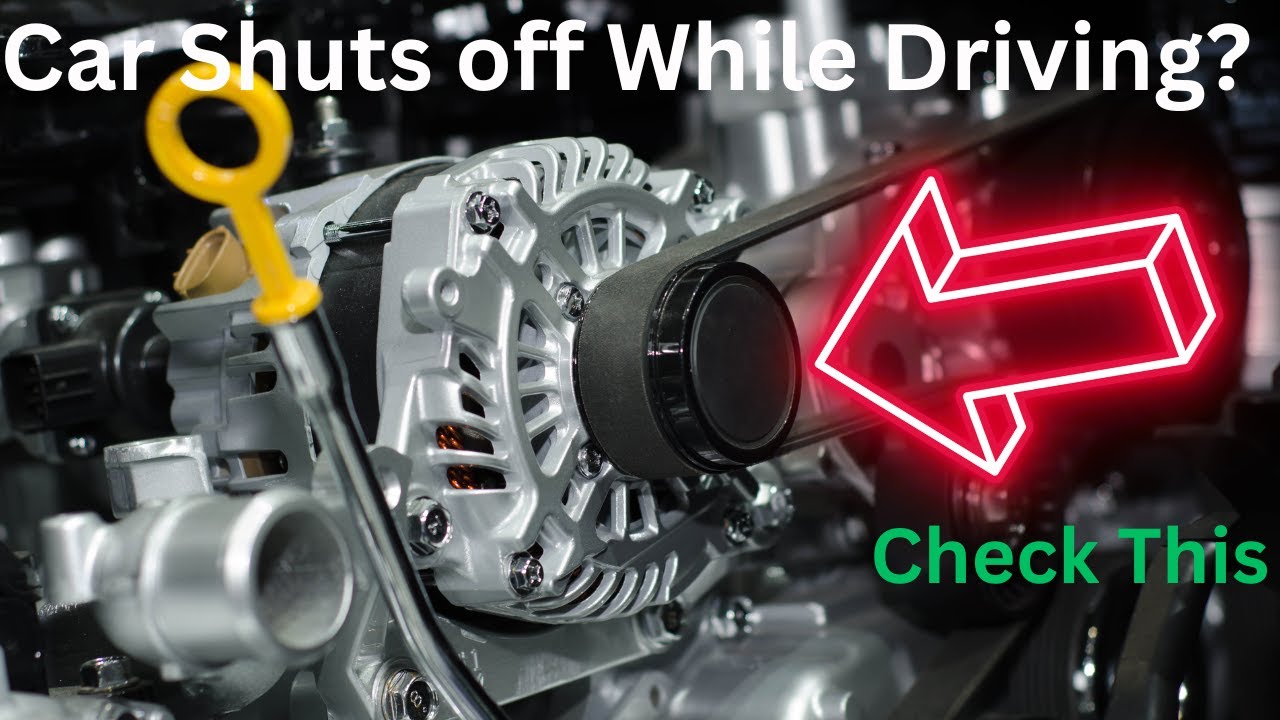Picture this: you’re cruising along, and suddenly, your car starts shaking, accompanied by a flashing check engine light. It’s more than just unsettling; it’s a sign that your vehicle is crying out for help. Let’s unravel the mystery behind these alarming signals, diving into the nine common causes and their fixes, ensuring you’re equipped to navigate this bumpy ride with confidence.
A flashing check engine light indicates a severe engine problem that needs immediate attention. The common causes of cylinder misfires are a faulty ignition coil, bad spark plugs, or a bad engine sensor, which may result in a lack of fuel in the combustion chamber. If the car only shakes when idling, it could be due to a problem with the idle air control valve.
Read on to learn more about the various causes of vehicle shake accompanied by a check engine light and how to address such issues, should they arise in the future.
9 Causes of Car Shaking While Check Engine Light Is Blinking
If your car’s check engine light flashes and your car is shaking, you may want to find out why. Here are some of the reasons why:
#1 Cylinder Misfire
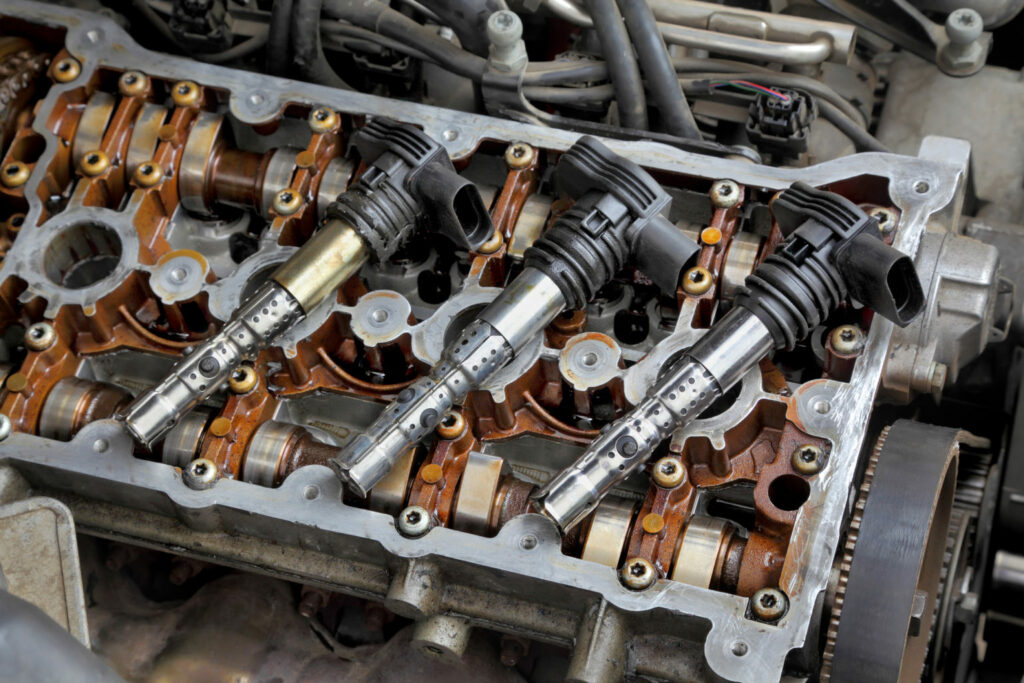
A cylinder misfire occurs when one or more cylinders in the engine fail to ignite correctly, resulting in a loss of power and rough idling. This issue is a common cause of a car shaking while the Check Engine Light is blinking.
It can be caused by various factors, including worn or damaged spark plugs, a faulty ignition coil, or a fuel delivery problem. Failure to promptly address a misfiring engine can damage the catalytic converter, which is expensive to repair.
#2 Faulty Ignition Coil
The ignition coil plays a crucial role in the engine’s proper functioning. It converts the low voltage from the battery into the high voltage needed to ignite the fuel and air mixture in the engine’s cylinders. A faulty ignition coil can cause the engine to misfire, leading to a car shaking while the Check Engine Light is blinking.
Symptoms of a failing ignition coil include difficulty starting the engine, reduced fuel efficiency, and rough idling. Replacing a faulty ignition coil is necessary to restore your car’s proper functioning.
#3 Clogged Fuel Injector
A clogged fuel injector is another potential cause of a misfiring engine that can lead to a car shaking while the Check Engine Light is blinking. Fuel injectors can become clogged with debris or sediment over time, reducing fuel flow to the engine.
This can cause the engine to misfire or run unevenly. Other symptoms of a clogged fuel injector include reduced fuel efficiency, engine hesitation, and a noticeable decrease in power. Regular engine maintenance, such as fuel injector cleaning, can prevent this issue from occurring.
#4 Vacuum Leak
A vacuum leak is when air is drawn into the engine through a crack or hole in the intake manifold or vacuum hose. This can cause a lean fuel mixture, leading to a misfiring engine and a car shaking while the Check Engine Light is blinking.
Other symptoms of a vacuum leak include a rough idle, stalling, and poor acceleration. Diagnosing and repairing a vacuum leak may require specialized equipment, and it is best to seek professional help in this case.
#5 Damaged Spark Plug
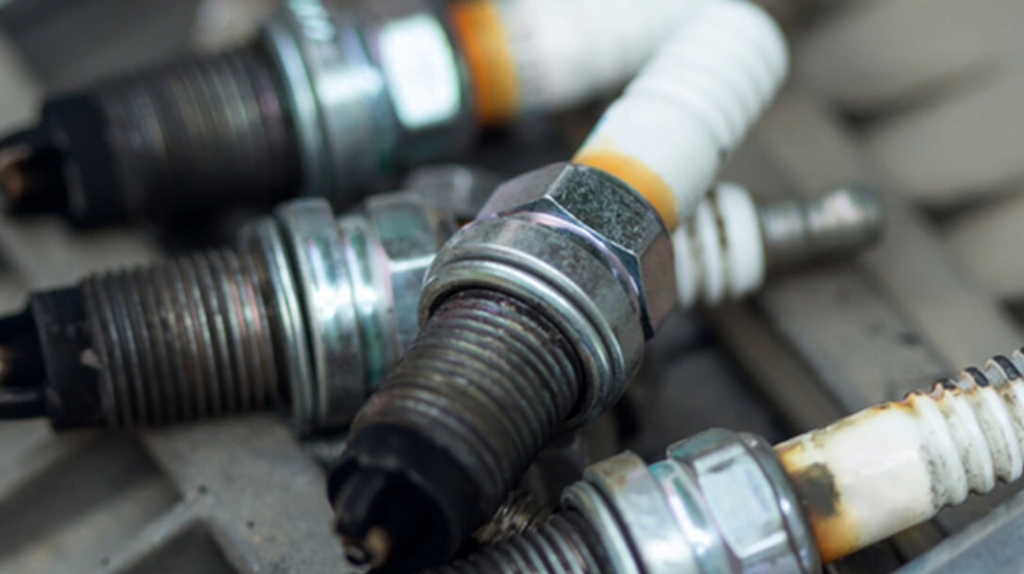
The spark plug is responsible for igniting the fuel and air mixture in the engine’s cylinders. A damaged or worn spark plug can cause the engine to misfire, leading to a car shaking while the Check Engine Light is blinking.
Symptoms of a damaged spark plug include difficulty starting the engine, poor acceleration, and reduced fuel efficiency. Regular maintenance, such as replacing spark plugs at the manufacturer’s recommended intervals, can prevent this issue from occurring.
#6 Faulty Intake Manifold Gasket
The intake manifold gasket acts as a seal that ensures the proper flow of air and fuel into the engine. If this seal fails, it can cause a vacuum leak that disrupts the air/fuel mixture, leading to engine misfires and shaking.
In addition to car shaking, a faulty intake manifold gasket can cause other symptoms, such as engine overheating, loss of power, and decreased fuel efficiency. If left unchecked, it can also cause damage to the engine and other components.
#7 Faulty Oxygen Sensor
The oxygen sensor monitors the amount of oxygen in the engine’s exhaust system. A faulty oxygen sensor can cause the engine to run too rich or lean, leading to a misfiring engine and a car shaking while the Check Engine Light is blinking.
Other symptoms of a faulty oxygen sensor include reduced fuel efficiency and increased emissions. Replacing a faulty oxygen sensor can help restore your car’s proper functioning.
#8 Low Fuel Pressure
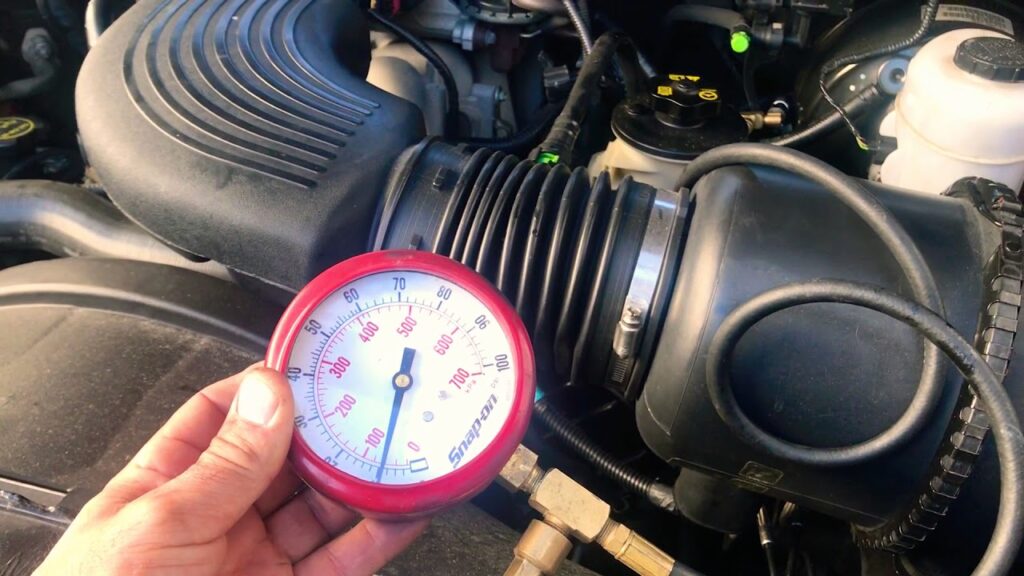
The fuel system is responsible for delivering fuel to the engine. Low fuel pressure can cause the engine to run lean, leading to a misfiring engine and a car shaking while the Check Engine Light is blinking.
Symptoms of low fuel pressure include difficulty starting the engine, poor acceleration, and reduced fuel efficiency. Diagnosing and repairing low fuel pressure may require specialized equipment and professional help.
#9 Transmission Issues
In some cases, a car shaking while the Check Engine Light is blinking may be caused by transmission issues. A failing transmission can cause the car to shake or vibrate, especially when shifting gears. Other symptoms of transmission issues include difficulty shifting gears, slipping gears, and strange noises.
How To Fix A Flashing Check Engine Light And Shaking Car?
The appropriate steps to fix a flashing Check Engine Light and shaking car depend on the root cause of the problem. However, here are some general steps that can help address the issue:
- Check the Trouble Code: A blinking Check Engine Light typically indicates a severe problem with the engine. You can use a diagnostic tool to retrieve the trouble code, which will provide more information about the underlying issue.
- Address the Root Cause: Once you have identified the root cause of the problem, you can take steps to address it. For instance, if the issue is a cylinder misfire, you may need to replace the spark plugs, ignition coils, or fuel injectors, depending on what is causing the misfire.
- Replace Faulty Parts: Replacing faulty parts is crucial to restoring your car’s proper functioning. Ignoring the problem can lead to more severe issues and costly repairs in the long run.
- Perform Regular Maintenance: Regular maintenance, such as changing the oil and air filter, can help prevent engine problems from occurring. Following the manufacturer’s recommended maintenance schedule is essential to keep your car running smoothly.
- Seek Professional Help: Some issues, such as vacuum leaks and transmission problems, require specialized equipment and expertise to diagnose and repair. It is best to seek professional help to avoid causing further damage to your car.
FAQs
What does a flashing Check Engine Light indicate?
A flashing Check Engine Light indicates a severe problem with the engine, such as a cylinder misfire, and requires immediate attention.
Can I still drive my car with a flashing Check Engine Light?
It is not recommended to drive your car with a flashing Check Engine Light as it can cause further damage to the engine and lead to costly repairs.
Can a shaking car be fixed by simply replacing spark plugs?
In some cases, replacing the spark plugs can fix a shaking car. However, diagnosing the underlying issue before replacing parts is crucial to avoid unnecessary expenses.
How much does it cost to fix a flashing Check Engine Light and shaking car?
The cost of fixing a flashing Check Engine Light and shaking car varies depending on the root cause of the problem and the cost of parts and labor. It is best to get an estimate from a professional mechanic.
Can regular maintenance prevent a flashing Check Engine Light and shaking car?
Performing regular maintenance, such as changing the oil and air filter, can help prevent engine problems from occurring. However, some issues may still arise despite regular maintenance, and it is essential to address them promptly.
Conclusion
A flashing Check Engine Light and a shaking car indicate a severe engine problem that requires immediate attention. The causes of this issue can range from simple fixes like replacing faulty spark plugs to more complex problems such as transmission issues.
Regular maintenance, proper diagnostic procedures, and seeking professional help when necessary can help address these problems and prevent more significant issues from occurring. Ignoring the issue can lead to more costly repairs and potentially dangerous situations. It’s essential to stay vigilant of any signs of a problem with your car’s engine and take prompt action to keep it running smoothly and safely.
